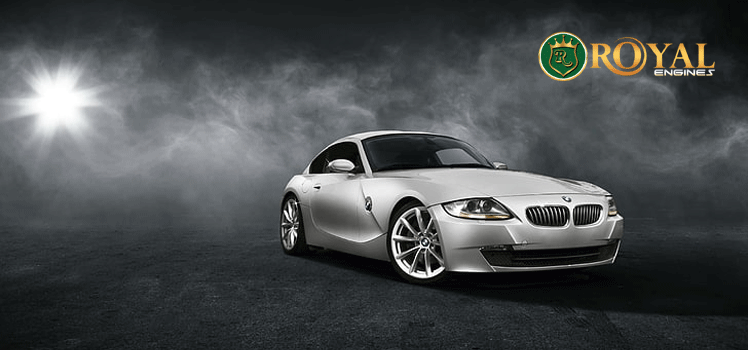How Does The BMW Z Series Engine Align With BMW’s Sustainability Goals?

BMW has long been at the forefront of automotive innovation, consistently pushing the boundaries of what is possible in terms of performance, luxury, and technology. However, as the world increasingly shifts toward sustainable practices, BMW has also made significant strides in aligning its vehicles with sustainability goals. The BMW Z Series, known for its dynamic performance and sleek design, is no exception. This article delves into how the BMW Z Series engine aligns with BMW’s sustainability goals, emphasizing the importance of eco-friendly engineering, the use of reconditioned engines, and the advantages of engine replacement and supply and fit services.
BMW’s Commitment to Sustainability
BMW’s commitment to sustainability is not just a trend but a core part of the company’s long-term strategy. The company has set ambitious targets, including achieving full carbon neutrality across its entire value chain by 2050. To meet these goals, BMW is investing in renewable energy, reducing emissions, and increasing the recyclability of its vehicles. The BMW Z Series engines, designed with cutting-edge technology, is a testament to this commitment. By focusing on efficiency and reduced emissions, the Z Series engine plays a vital role in BMW’s broader sustainability agenda.
Innovative Engine Design for Reduced Emissions
The BMW Z Series engine is engineered with innovative features that significantly reduce emissions without compromising performance. One of the key technologies is BMW’s TwinPower Turbo technology, which enhances engine efficiency and lowers CO2 emissions. Additionally, the engine is designed to comply with stringent emissions standards, ensuring that the Z Series contributes to cleaner air and a healthier environment. These advancements are aligned with BMW’s sustainability goals, demonstrating the company’s dedication to producing vehicles that are both powerful and environmentally responsible.
Lightweight Materials and Improved Fuel Efficiency
Another crucial aspect of the BMW Z Series engine’s alignment with sustainability goals is the use of lightweight materials. By reducing the overall weight of the engine, BMW has improved the Z Series’ fuel efficiency, which in turn reduces the vehicle’s carbon footprint. The incorporation of lightweight alloys and composite materials not only enhances performance but also contributes to BMW’s objective of creating more sustainable vehicles. This approach underscores the brand’s focus on developing engines that are both high-performing and eco-friendly.
The Role of Reconditioned Engines in Sustainability
Reconditioned engines are becoming an increasingly popular option for those looking to reduce their environmental impact. By opting for a reconditioned BMW Engine, drivers can extend the life of their vehicles while minimizing waste. Reconditioned engines are thoroughly inspected, repaired, and tested to meet high-quality standards, ensuring they perform like new. This process supports BMW’s sustainability goals by reducing the need for new engine production, thereby conserving resources and lowering emissions associated with manufacturing.
Engine Replacement and Its Environmental Benefits
Engine replacement is another way that the BMW Z Series aligns with sustainability goals. Instead of discarding an entire vehicle when the engine fails, replacing the engine allows the vehicle to continue running efficiently. This practice reduces the environmental impact by minimizing waste and conserving the materials that would have been used to produce a new vehicle. Additionally, engine replacement services, especially those offered by BMW, ensure that the replaced engines meet the latest efficiency and emissions standards, further supporting the brand’s sustainability objectives.
Supply and Fit Services: A Sustainable Solution
Supply and fit services provided by BMW and authorized service centers are designed to offer customers a sustainable solution when it comes to engine replacement or repair. These services ensure that the correct engine or parts are supplied and fitted by trained professionals, maintaining the vehicle’s performance and efficiency. By utilizing supply and fit services, BMW owners can ensure that their Z Series engines continue to meet sustainability standards, thereby contributing to a reduction in environmental impact. This approach not only supports sustainability but also provides peace of mind to customers, knowing that their vehicles are being maintained to the highest standards.
Recycling and Reusing Components in the Z Series Engine
BMW has implemented comprehensive recycling and reuse strategies in the design and production of the Z Series engine. Many components of the engine are designed to be recyclable, and BMW ensures that end-of-life engines are responsibly disposed of, with materials being reclaimed and reused where possible. This practice reduces the environmental impact of vehicle production and disposal, aligning with BMW’s sustainability goals. By focusing on the circular economy, BMW is able to minimize waste and resource consumption, making the Z Series engine a key component of the company’s sustainable vehicle lineup.
The Future of the BMW Z Series and Sustainability
Looking ahead, BMW is committed to further integrating sustainability into the Z Series and its entire vehicle lineup. This includes the development of next-generation engines that incorporate even more advanced eco-friendly technologies. BMW’s research and development efforts are focused on improving engine efficiency, reducing emissions, and increasing the use of renewable energy in manufacturing processes. As the automotive industry continues to evolve, the BMW Z Series is expected to remain at the forefront of sustainable engineering, offering drivers a unique blend of performance, luxury, and environmental responsibility.
Conclusion
The BMW Z Series engine is a prime example of how high-performance vehicles can align with sustainability goals. Through innovative design, the use of lightweight materials, and the integration of reconditioned engines, BMW is demonstrating its commitment to reducing the environmental impact of its vehicles. Engine replacement and supply and fit services further support these efforts, providing sustainable solutions for maintaining vehicle performance. As BMW continues to push the boundaries of automotive engineering, the Z Series will remain a testament to the brand’s dedication to sustainability, offering drivers a vehicle that is both thrilling to drive and kind to the planet.


